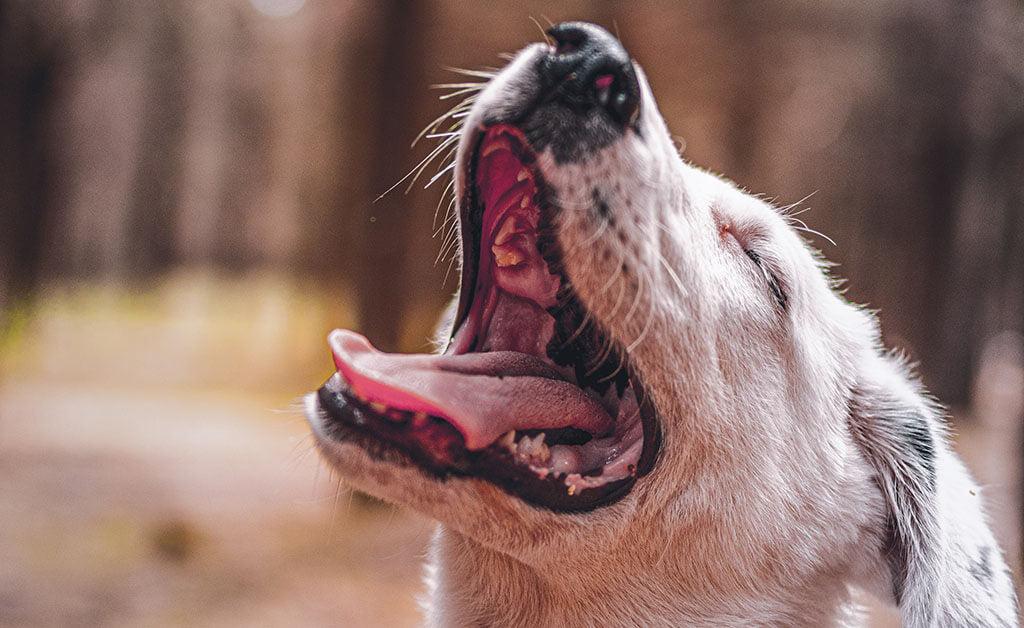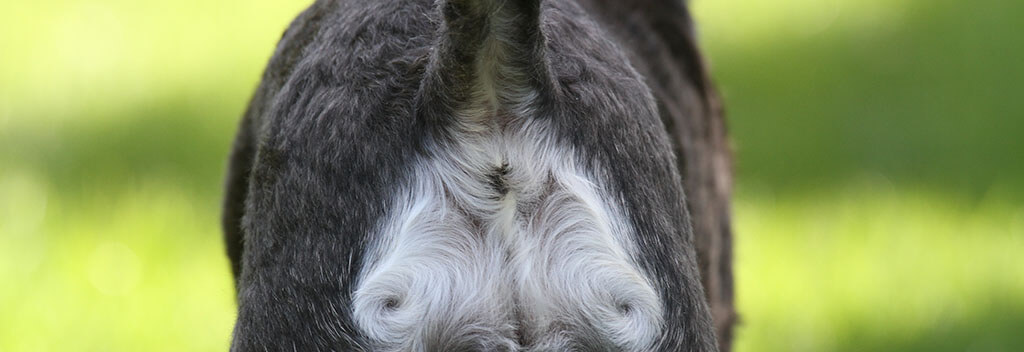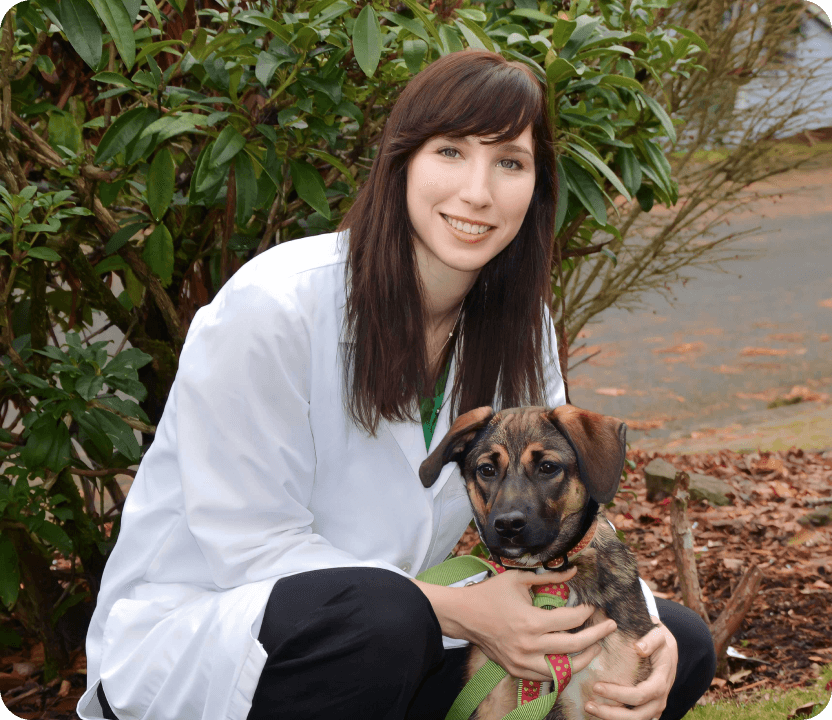Discover why your dog’s breath smells like fish. From their diet to oral hygiene, learn how to avoid fishy dog breath below…
Why Does My Dog’s Breath Smell Like Fish?

Have you ever cuddled up to your furry friend just to be greeted by a smell that can only be described as a fish market? It’s not the most pleasant experience, and you might be wondering why your dog’s breath smells like fish.
Well, don’t worry, you’re not alone!
Many dog owners have experienced this peculiar odor and bad breath, and there are a few common causes behind fishy dog breath.
Top 4 Common Causes of Fishy Dog Breath
There are several reasons why your dog’s bad breath may smell like fish. Let’s take a closer look at some of the common causes:
1. Diet
Your dog’s smelly fish breath could be due to something as simple as their diet. If they’re eating a fish-based diet, that’s an easy explanation.
The food you give your pup can play a huge role in the smell of their breath. Certain types of food, especially fish-based or high-protein diets, can cause a fishy odor in your dog’s mouth. When your dog digests fish or other protein-rich foods, their metabolism breaks these down into nitrogen-containing compounds. Some of these compounds, such as trimethylamine, have a distinctly fishy smell. Trimethylamine is also produced in the gut during the digestion of certain other nutrients and is released in the breath – and sometimes the rear end!
If your pup has a fish-rich diet, or you give them fish-based supplements – including fish oil food toppers – then it is most likely the cause of your pup’s stinky dog breath.

2. Anal Glands
The anal glands are two small sacs located internally on either side of a dog’s anus. These anal sacs are filled with a smelly liquid that dogs use for identification and marking territory. Normally, the glands empty a small amount of this fluid each time they defecate. Some dogs will also release their anal glands if they are scared or excited. If the glands don’t empty properly, they can become impacted, and the fluid can become quite smelly, often with a fishy odor – commonly known as ‘fish butt’.
Along with a fishy smell, other common signs your dog’s anal sacs are impacted are scooting their butt across the floor, excessively licking or biting their rear end, swelling near the anus, and visible discomfort while sitting.
If the anal glands are not expressed naturally through defecation, they can become full and uncomfortable for the dog, potentially leading to health complications such as anal gland infection and abscess.
So, if you notice the fishy smell is coming from their rear end or from their mouth after licking their rear end, you will need to have them checked over by your veterinarian.
3. Stomach Issues
Dogs with gastrointestinal problems, such as acid reflux or stomach upset, may also have bad breath that smells acidic or fishy. This is due to the stomach acids that come up during episodes of reflux or upset. These can cause an unpleasant odor in your dog’s mouth – not very nice at all!
Chronic reflux can also cause damage to the esophagus and may lead to more serious conditions. Other gastrointestinal issues that could cause similar symptoms include imbalances in intestinal bacteria or digestive inefficiencies.
4. Dental Disease
Just like in humans, poor oral hygiene can lead to dental problems in dogs. The bacteria in your dog’s mouth can build up and accumulate as plaque, a soft film on your dog’s teeth. Once plaque forms, it hardens into tartar or calculus, which further irritates the gums and surrounding structures of the teeth, leading to loose teeth, infection, bleeding, pain, and odor. Some bacteria also produce sulfur-containing compounds as a by-product of metabolism, which can lead to a fishy smell – yuck! Something like a growth or foreign body stuck in your dog’s mouth could also cause an especially foul odor.
If your dog’s breath smells like fish, it could be an indication of a dental issue that requires attention from your veterinarian.
When is Fishy Dog Breath Something to Worry About?
While an occasional bout of fishy breath in dogs may not be a cause for concern (especially if their diet is fish-heavy), persistent bad breath can be a sign of an underlying issue that requires attention. If your dog’s breath consistently smells like fish, it’s essential to consult your veterinarian for a thorough evaluation. Ignoring the issue may lead to further complications and discomfort for your furry friend.
If your dog’s breath smells strongly of fish and is accompanied by other signs such as vomiting, loose stools, weight loss, lethargy, or changes in appetite or water intake, it’s crucial to seek veterinary attention promptly.

How To Avoid Fishy Dog Breath
The good news is that we have some tips and tricks to help get rid of bad breath and keep your dog’s breath smelling fresh:
1. A Good Daily Dental Routine
Maintaining a good oral hygiene routine is essential for avoiding bad breath in dogs!
Make sure you brush your dog’s teeth regularly using a dog-specific toothpaste. However, if your dog hates having their teeth brushed, there are plenty of alternatives…
Dental chews, toys, and specific dog dental washes can also help clean their teeth and gums.
And don’t forget regular dental cleanings performed by your veterinarian! These are just like our cleanings when we go to the dentist, not just a good brushing – under anesthesia, your vet will thoroughly examine and clean your dog’s teeth, and even take dental X-rays. Keeping up with your dog’s teeth cleaning appointments can also help keep your dog’s breath fresh and healthy.
2. Anal Gland Care
If your dog’s anal sacs are the culprit behind the fishy smell, you may need to have regular expression of the glands by your veterinarian or a trained professional. A professional can safely express, or empty, these anal sacs, ensuring your dog’s comfort and health. While some dogs never have issues with their anal glands, others may need them expressed once a month.
During a regular wellness exam, your veterinarian can assess the anal sacs and perform expression if needed. This routine care can prevent the glands from becoming overly full and impacted, which is essential for maintaining your dog’s anal gland health.
Expressing a dog’s anal glands involves applying precise pressure to the glands to release the stored fluid. This procedure requires a delicate touch and a thorough understanding of canine anatomy to avoid causing pain or injury to your dog.
Top Tip: Unless you have been taught by a professional, avoid attempting to express the anal glands yourself, as improper techniques can cause further complications.
3. Support Your Dog’s Gut Health
Taking care of your dog’s gut health can also help impact their breath. Feed your pup a balanced diet with plenty of fiber, provide clean water, and avoid table scraps or human foods since these can upset their stomach.
You could even try adding a dog probiotic to their daily routine to support gut health even further.
If your dog has frequent episodes of upset stomach or acid reflux, consult your veterinarian for appropriate management.
4. Always Have Fresh Water
Something as simple as making sure your dog has access to clean and fresh water at all times could be the answer to your fishy dog breath woes.
Keeping hydrated can help flush out any bacteria or odor-causing compounds from their mouth. You can also add a dental wash for dogs to your canine companion’s water that is specifically formulated to freshen your dog’s breath.

If you have both cats and dogs, make sure the water additive you use is safe for both species. Cats can be very sensitive to things dogs don’t have trouble with.
Dr. Jamie Clanin, DVM
5. Visit Your Vet
As mentioned above, regular visits to your veterinarian for health exams and dental cleanings can help identify and address any underlying issues that may be causing your dog’s breath to smell like fish.
Your vet can provide professional dental cleanings, recommend appropriate dental care products, and check for any signs of systemic health problems that may affect your dog’s breath.
Final Thoughts on Why Your Dog’s Breath Smells Like Fish
If your dog’s breath smells like fish, it’s important to identify the underlying cause and take appropriate steps to address it. Diet, anal gland issues, and dental problems are common causes of fishy breath in dogs, but it could also be a sign of an underlying health problem.
Regular dental care, a balanced diet, maintaining gut health, regular vet check-ups, and proper anal gland care can all help you to avoid fishy breath in dogs.
And remember, your dog’s breath may not always smell like fresh mint, but it shouldn’t have a strong, persistent fishy odor. Keeping an eye (or a sniff!) on your dog’s breath and taking appropriate measures to maintain their oral and overall health will ensure that you can enjoy cuddles and doggy kisses with your furry friend without being greeted by an unpleasant smell.
FAQs on Fishy Dog Breath
How do I get rid of my dog’s fishy breath?
Typically the smell passes on its own, but brushing your pet’s teeth or rinsing their mouth may help eliminate that smell quicker. See your vet if the smell persists.
What does it mean if my dog’s breath smells like fish?
The bacteria that cause plaque buildup can also cause bad breath. Those with dental conditions such as gingivitis, and periodontitis are often associated with poor oral health in dogs. In addition to bad breath, dogs with dental disease may stop chewing on their favorite toys, be reluctant to eat hard food, or may tilt their head while eating to move the food away from painful areas of their mouth.
What does dog breath smell like with liver disease?
If your dog suffers from liver disease, their breath can be affected by the decreased function in their liver. When the liver cannot remove toxins from the blood, it can produce foul breath. Other diseases that can cause the smell of your dog’s breath to change include kidney disease and diabetes.
Can certain breeds of dogs be more prone to fishy breath?
Yes, certain breeds of dogs can be more prone to developing fishy breath. This is often due to their susceptibility to dental issues or anal gland problems. Small breeds, brachycephalic breeds (short-nosed), and those with tightly curled tails are particularly at risk:
- Small Breeds: Dogs like Chihuahuas, Dachshunds, and Yorkshire Terriers often have dental challenges. This is because their teeth are closer together, which can lead to plaque and tartar build-up – contributing to bad breath.
- Brachycephalic Breeds: Breeds such as Bulldogs, Pugs, and Boxers can have crowded teeth due to their shorter jaw structure.
- Breeds with Tightly Curled Tails: Dogs such as Pomeranians and Bulldogs can have issues with their anal glands due to their tail anatomy, which can sometimes inhibit the natural expression of these glands when defecating.
It’s important for owners of these breeds to be particularly vigilant with dental care routines and regular vet check-ups to manage and prevent fishy breath caused by these issues.
Sources
‘Why Does My Dog Smell Like Fish?’, The Kennel Club, https://www.thekennelclub.org.uk/health-and-dog-care/health/health-and-care/a-z-of-health-and-care-issues/why-does-my-dog-smell-of-fish/
 B
B





